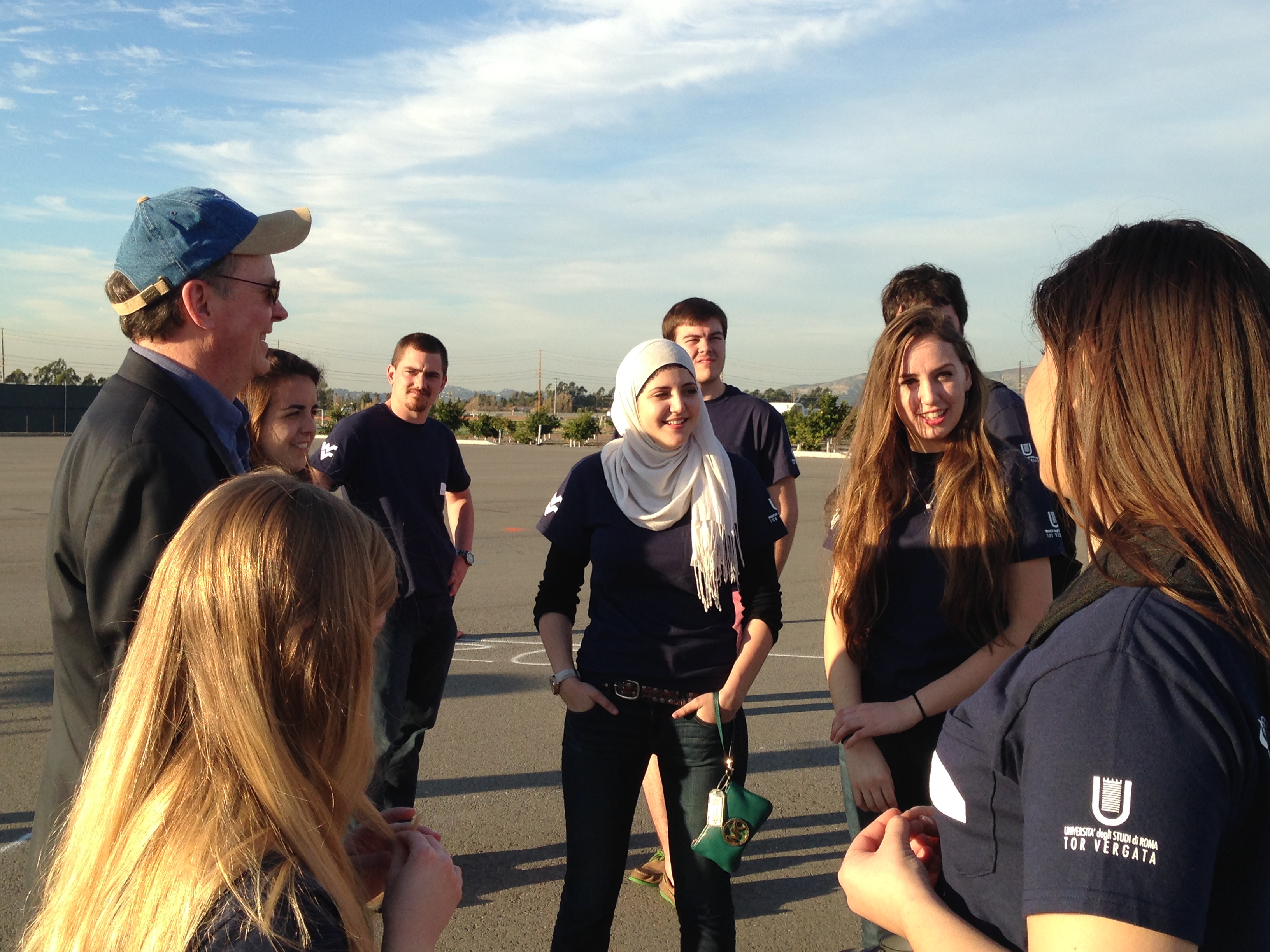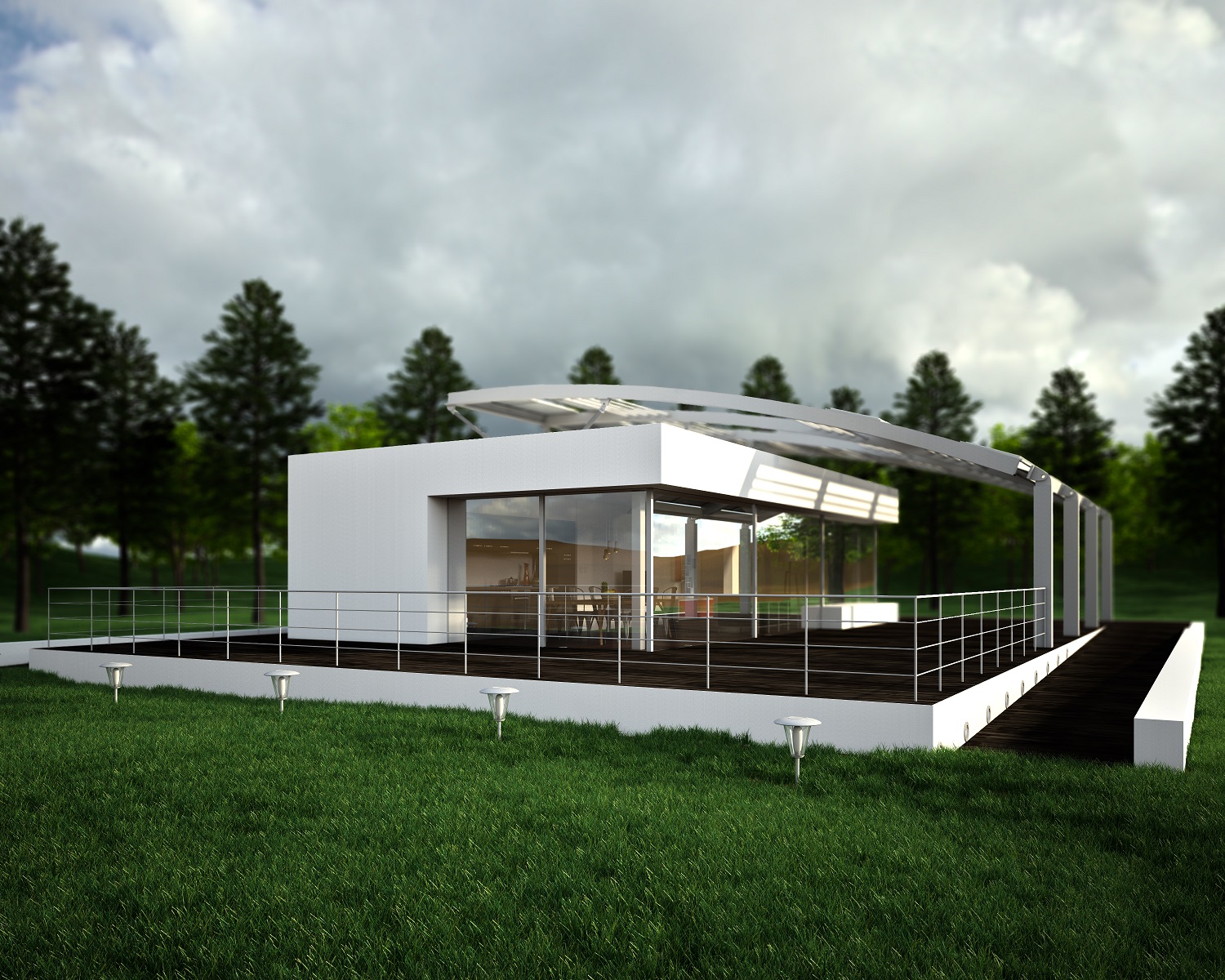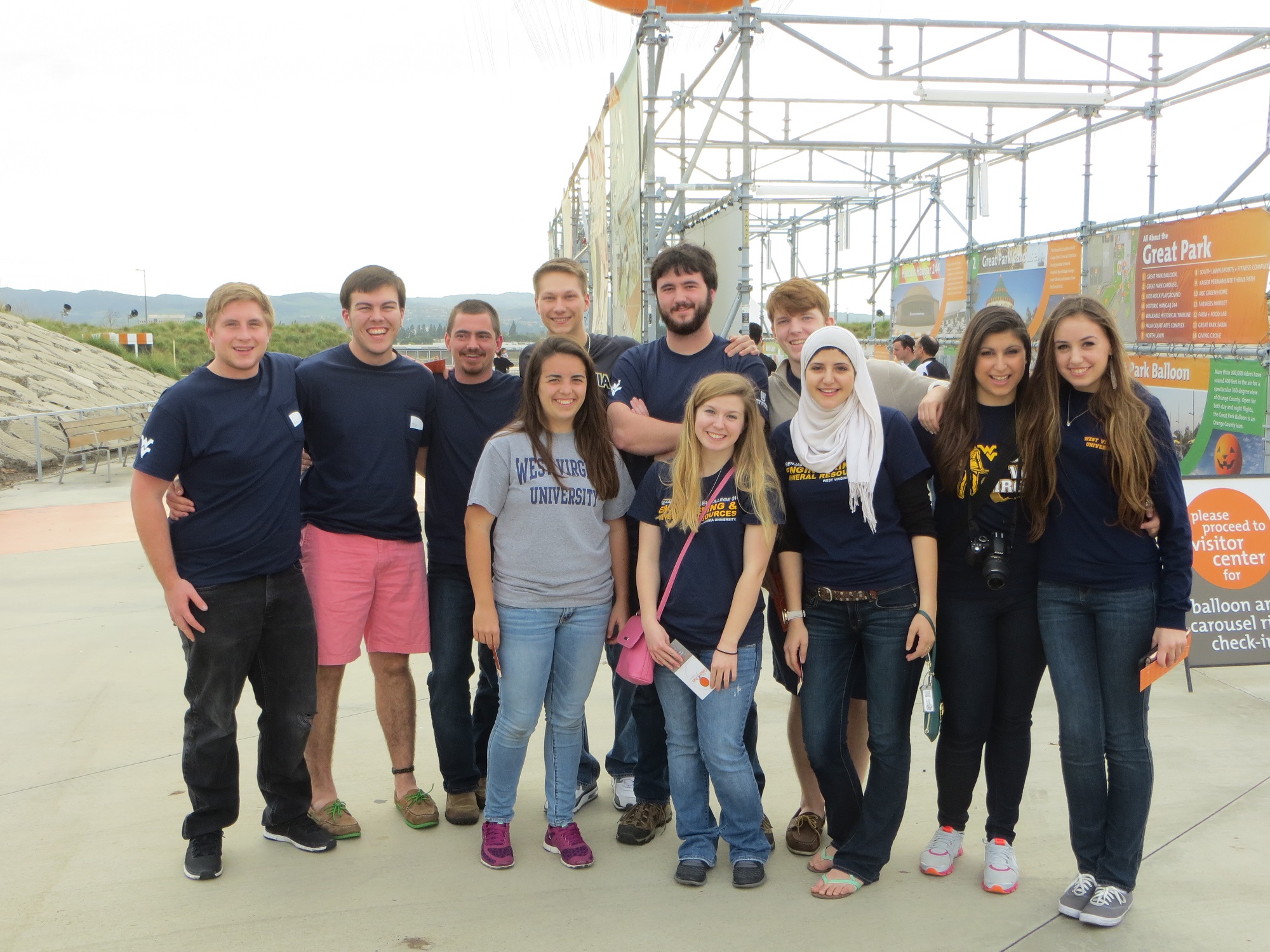West Virginia/Rome Team Merges Classical and Southern STILE
Tuesday, January 20, 2015By Ernie Tucker
The aroma of Italian cooking will waft from STILE, the West Virginia University and University of Roma Tor Vergata entry in the U.S. Department of Energy Solar Decathlon 2015, during the team’s dinner parties. Those meals will showcase the Italian influence on this partnership between West Virginian and Italian cultures.
“I feel bad for whoever has to pick which dish to serve,” laughs Sharrafti Kuzmar, a junior studying electrical engineering who was also on West Virginia University’s Solar Decathlon 2013 team. “When we went to Rome last summer, the food was so amazing.”

Sharrafti Kuzmar, center, shares a light moment with teammates and Solar Decathlon Director Richard King (left) while visiting the West Virginia/Rome team lot at the Orange County Great Park competition site on Friday, Jan. 9. (Credit: Amy Vaughn/U.S. Department of Energy Solar Decathlon)
STILE (the Italian spelling of “style”) stands for Sustainable Technologies Integrated in a Learning Experience and draws upon Appalachian roots and centuries-old Roman tradition. That, Kuzmar believes, makes the house unique.
The Solar Decathlon 2015 team has designed a compact house that will bring Roman culture to West Virginia. The house is covered by an elegant, classically inspired arch that runs north to south to support solar panels and create a natural patio that will provide passive cooling.

STILE, the house being designed by the West Virginia/Rome team, blends Italian and West Virginian influences. (Courtesy of the West Virginia University and University of Roma Tor Vergata Solar Decathlon 2015 team)
To formulate project plans, the team has had to overcome obstacles—an effort that has helped unify the group. Something as simple as organizing team meetings requires careful coordination to bridge the six-hour time difference.
“We worked it out so that our meetings aren’t too late there or too early here,” says Kuzmar, a Morgantown, West Virginia, native.
To further team bonds, some members from West Virginia University traveled to Rome last summer to work directly on the project with their Italian teammates.
“That was a new experience for all of us,” Kuzmar says.

Members of the Solar Decathlon 2015 West Virginia University and University of Roma Tor Vergata team gathered at the Orange County Great Park on Jan. 9 as part of activities associated with the Design Development Review Workshop. (Credit: Carol Laurie/U.S. Department of Energy Solar Decathlon)
In addition, two Roman decathletes are currently studying at West Virginia University. Stefania Rossi is one of them.
“It is a very interesting experience working with both universities,” Rossi says.
The double-engineering major says that forging the two visions into one unified project “has been a good challenge.” As a result, she believes the house is the best of both worlds—a hybrid of old and new.
While in Morgantown, the Italian decathletes can experience West Virginia’s more rustic style and the 19th-century influences that shaped the STILE project. They can also see PEAK, West Virginia University’s Solar Decathlon 2013 house, in its permanent home at the West Virginia Botanic Garden.
The experience of building PEAK, an acronym for “Preserving Energy with Appalachian Knowledge,” has helped smooth the current process.
“Last time, we had trouble with plumbing,” Kuzmar says. “Now, we have a better understanding of the competition, thanks to things that came up unexpectedly in 2013.”
In addition to house design, the two universities are collaborating closely on the logistics of transporting STILE. “We’re figuring out how to break the house down at the same time we’re putting it up,” Kuzmar says.
The team credits its mentors, including principal investigator Dimitris Korakakis and experts in Rome, with helping the students gain practical experience and problem-solving skills—skills that Kuzmar, Rossi, and others hope to use in future careers in green building and clean tech.
As they ready for the first assembly of the house this summer, the team is also looking ahead to other aspects of the competition. One Italian student, who happens to be writing a cookbook, is eager to plan the menus for the team’s competition dinner parties, part of the Home Life Contest.
Kuzmar, who has already declared her awe of Italian cuisine, says simply, “I love the Italians.” Those mutual bonds are what give this project its zesty international flavor.
Ernie Tucker is a member of the U.S. Department of Energy Solar Decathlon communications team.
Tags: Home Life, Solar Decathlon, Solar Decathlon 2015, Teams, West Virginia/Rome
